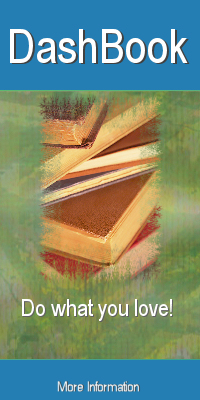YouTube is the place people go for music. Whether they want to listen to a particular song, watch a music video, or upload a collage dedicated to a loved one, YouTube is the internet destination.
In the past, that has greatly bothered me. As I tell people, I’ve made my living from intellectual property (computer software), so I couldn’t steal someone else’s work with a clear conscience. It is my understanding that it is illegal to make public, like uploading to the internet, copyrighted material in which you do not own the copyright. Likewise, similar to using stolen goods, it would be illegal to view or listen to such material.
YouTube, owned now by Google, does not require that the person uploading videos prove that he has the legal right to do so, just like web hosts do not prevent website owners from uploading illegal content. There is a bit of difference though. The two most popular illegal uploads to YouTube are music and music videos which have been registered with the U.S. Copyright Office. And these works are publicly available for purchase. This means that Google could discover the origin of these works, as opposed to confidential company information that was newly leaked. See “Detecting the Origin of Text Segments Efficiently” for an example of Google’s intelligence when it comes to deciding the origin of news. They aren’t ignorant, and they have the money to access BMI, ASCAP, SESAC, etc. to find the information required to abide by the law.
But they don’t do that. Why? I’d say they suffer from an aggression that lawyers phrase, “It is better to ask forgiveness, than to ask permission.” This can be interpreted as, “It’s OK to violate the copyright holder’s rights, and if they complain, we’ll remove the offending material.” Google also used this stance when it decided to copy millions of books to make them available to readers, without consulting the publishers of those books. Like an ignorant child who taunts “Finders keepers; losers weepers,” Google tried to gift to the world that which was not theirs by claiming that they will make out-of-print books available even though these books are still works bound by copyright law. Basically, they are acting criminally, and asking to be policed, rather than seeking to avoid breaking the law.
Well, YouTube has recently changed this posture. While copyright owners who do not police their works may continue to have them stolen, YouTube now allows these owners to register their works with YouTube so that any uploads that contain these works will accrue royalty payments. (Scribd and other sites friendly to violators should follow this improvement.)
This means that when someone uploads a video, YouTube will scan the audio portion to see if it matches one of their commercial customers’ songs. If it does, then each time this video is played, YouTube will pay the copyright holder for this performance. I imagine that a registering copyright holder can also request that their songs not be allowed to be uploaded from elsewhere, just as there would be a need to disallow playing based on location, since licensing contracts can dictate different owners of the copyrighted material for different regions of the world.
If you are uploading videos, you can use YouTube’s AudioSwap feature to include legal music directly, to ensure that you are not violating someone’s music copyright.
What does this mean to me? Well, it now gives me plausible deniability. I can now claim that each time I play a video from YouTube, that the royalty owners are getting paid for that performance. This makes YouTube my new favorite location for finding specific songs -- all the music without the guilt.
Subscribe to:
Post Comments (Atom)

No comments:
Post a Comment